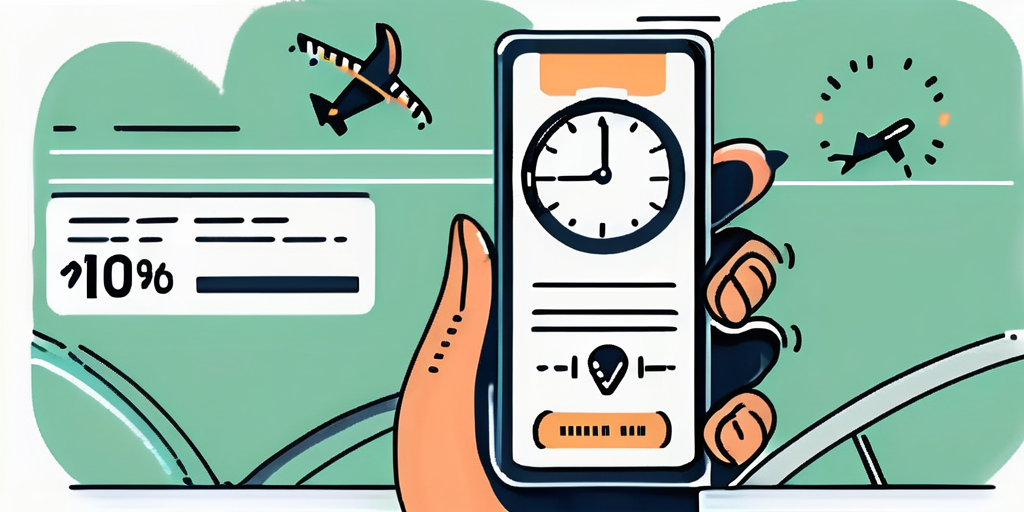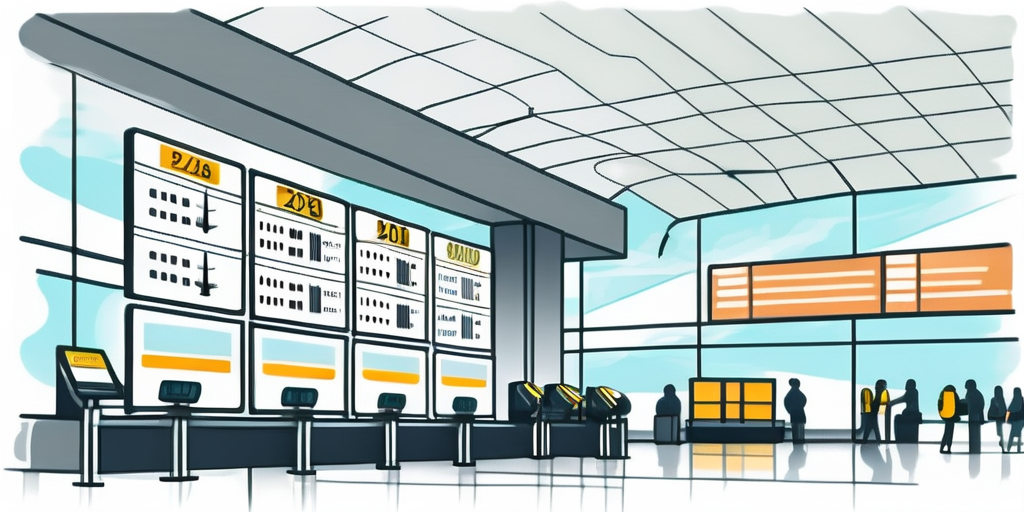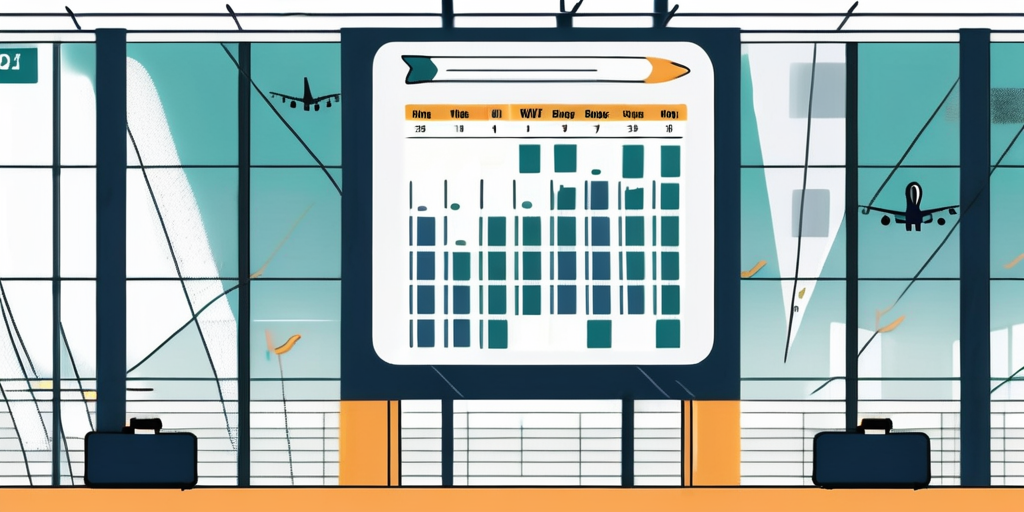How to Avoid Overbooking on Flights
Discover effective strategies to avoid flight overbooking. Learn about booking tactics, timing, and airline policies for smoother travels.
Overbooking on flights can be a frustrating experience for both passengers and airlines. Understanding the concept of overbooking is crucial in order to avoid being affected by it. Additionally, being aware of your rights as a passenger and implementing certain strategies can help you steer clear of the inconvenience of overbooking. In this article, we will explore the business model behind overbooking, its legalities, the impact on passengers, strategies to avoid being overbooked, passenger rights, and how airlines are addressing this issue.
Understanding the Concept of Overbooking
Before we delve into the details, let's first understand what overbooking actually means. The practice of overbooking occurs when airlines sell more tickets for a particular flight than the available number of seats on the aircraft. This is done based on statistical analysis and historical data that suggests a certain percentage of passengers may not show up for their flights.
Overbooking allows airlines to maximize their revenue by ensuring that every seat on the flight is occupied. However, it can sometimes result in a situation where there are more passengers with confirmed reservations than there are seats available on the aircraft.
The Business Model Behind Overbooking
From a business perspective, overbooking is a risk management strategy employed by airlines to minimize revenue loss due to no-show passengers. By overselling tickets, airlines can increase their chances of filling all seats and avoid flying with empty ones. This practice has become common in the industry as it allows airlines to operate at maximum capacity and increase profitability.
However, this strategy is not foolproof, and occasionally, situations can arise where there are more passengers than available seats, leading to overbooking-related issues.
The Legalities of Overbooking
Overbooking is a legal practice, but it is regulated by various aviation authorities to protect passenger rights. Airline policies differ from country to country, but there are common guidelines that airlines must adhere to when it comes to compensating passengers in case of overbooking.
It is essential for consumers to be aware of their rights and the compensation they are entitled to in case they are involuntarily denied boarding due to overbooking.
The Impact of Overbooking on Passengers
While overbooking can be beneficial for airlines, it can often lead to inconvenience and frustration for passengers. Imagine arriving at the airport, excited for your trip, only to find out that your flight is overbooked and you may not be able to board. This can be a stressful situation, especially if you have important commitments or time-sensitive plans at your destination.
When overbooking occurs, airlines typically ask for volunteers to give up their seats in exchange for compensation, such as vouchers or future travel credits. However, if there are not enough volunteers, the airline may have to involuntarily deny boarding to some passengers. This can result in passengers being rebooked on later flights, causing delays and disruptions to their travel plans.
It's important for passengers to understand their rights in these situations. Depending on the airline and the specific circumstances, passengers may be entitled to compensation, accommodation, and assistance if they are involuntarily denied boarding due to overbooking.
The Impact of Overbooking on Passengers
Overbooking can have several negative consequences for passengers, including stress and financial loss. Let's explore these impacts in more detail:
The Stress of Overbooking
Being told that your flight is overbooked can be a stressful experience, particularly if you have important plans or time-sensitive commitments at your destination. The uncertainty of whether you will be able to board the flight can cause anxiety and inconvenience.
Passengers who have been affected by overbooking often have to go through additional hassle, such as rebooking their flights, rearranging their travel plans or even missing out on important events.
Moreover, the stress of overbooking can be exacerbated by the lack of clear communication from airlines, leading to confusion and frustration among passengers. This lack of transparency in the overbooking process can further escalate the tension and discomfort experienced by travelers.
Financial Consequences of Overbooking
Overbooking can also result in financial loss for passengers. In some cases, passengers may incur extra costs such as hotel stays, transportation, or additional meals due to being rebooked on a later flight. These unexpected expenses can add up and significantly impact travel budgets.
Furthermore, if a passenger is unable to make alternative arrangements and reach their destination as planned, they may experience financial loss due to missed connections, hotel reservations, or prepaid activities.
Additionally, the financial impact of overbooking extends beyond immediate expenses. Passengers who face disruptions due to overbooking may also suffer from lost productivity at their destination, leading to potential income loss for business travelers or missed opportunities for leisure travelers.
Strategies to Avoid Being Overbooked
While you cannot control whether an airline overbooks a flight, you can take certain steps to minimize the chances of being affected by overbooking:

Booking Early and Checking In Early
One way to increase your chances of avoiding overbooking is by booking your flight as early as possible. Booking well in advance increases the likelihood of securing a confirmed seat on the flight.
In addition to booking early, be sure to check in as soon as check-in opens. Early check-in ensures that you are among the first passengers to be assigned a seat, reducing the risk of being bumped off the flight in case of overbooking.
Moreover, when booking early, you may also have the advantage of accessing better seat options. Airlines often reserve prime seats for passengers who book early, giving you the opportunity to choose a preferred seat with extra legroom or a better view.
Choosing Less Popular Flights
Another strategy to consider is opting for less popular flights. Flights during off-peak times or on weekdays tend to have lower demand, reducing the likelihood of overbooking. By selecting flights that are less likely to be crowded, you can decrease the chances of being involuntarily denied boarding.
Furthermore, less popular flights may offer a more peaceful and relaxed travel experience. With fewer passengers on board, you might enjoy a quieter cabin atmosphere, quicker boarding and deplaning processes, and potentially more personalized attention from the flight crew.
Rights of Passengers in Case of Overbooking
If you find yourself in a situation where your flight is overbooked and you are involuntarily denied boarding, it is essential to be aware of your rights as a passenger:
 Overbooking is a common practice in the airline industry, where airlines sell more tickets than the actual capacity of the aircraft, anticipating that some passengers may not show up for the flight. However, when all passengers arrive, overbooking can lead to situations where some travelers are denied boarding against their will.
Overbooking is a common practice in the airline industry, where airlines sell more tickets than the actual capacity of the aircraft, anticipating that some passengers may not show up for the flight. However, when all passengers arrive, overbooking can lead to situations where some travelers are denied boarding against their will.
Compensation for Overbooking
Depending on the regulations in your country, you may be entitled to compensation if you are involuntarily denied boarding due to overbooking. This compensation can include monetary reimbursement for the inconvenience caused, as well as the option to be rerouted to your destination on the next available flight.
It's important to note that the amount of compensation can vary depending on the length of the delay caused by the overbooking and the distance of the flight. Familiarize yourself with the specific compensation regulations applicable to your journey to ensure you receive the compensation you are entitled to.
Alternative Travel Arrangements
In addition to compensation, airlines are obligated to provide alternative travel arrangements for passengers affected by overbooking. This can include rebooking on the next available flight or booking with another airline to ensure you reach your destination as soon as possible.
When faced with an overbooking situation, it is crucial to stay informed and assert your rights as a passenger. By understanding the regulations and policies surrounding overbooking, you can navigate such scenarios with confidence and ensure a smoother travel experience.
How Airlines are Addressing Overbooking
Recognizing the inconvenience and negative impact of overbooking on passengers, airlines are continuously adapting their practices to minimize the occurrence of overbooking-related issues. Here are some measures airlines are taking:

Changes in Overbooking Policies
Many airlines have revised their overbooking policies to reduce the chances of overbooking and the resulting inconveniences. Some airlines have implemented stricter controls on overselling tickets, while others have invested in advanced predictive algorithms to more accurately forecast passenger no-show rates.
Moreover, airlines are also focusing on enhancing communication with passengers regarding overbooking situations. Clearer explanations of compensation options and alternative travel arrangements are being provided to ensure passengers are informed and supported in case of overbooking.
Technological Solutions to Overbooking
Technological advancements have also played a significant role in addressing overbooking. Airlines are utilizing sophisticated revenue management systems and reservation databases to monitor passenger bookings and adjust seat availability accordingly. These systems help airlines identify flights that are more likely to experience overbooking and take preventive measures.
Additionally, some airlines are exploring the use of blockchain technology to streamline the ticketing and booking process, reducing the likelihood of overbooking errors. By leveraging blockchain's secure and transparent nature, airlines aim to create a more efficient and accurate booking system that minimizes overbooking instances.
In Conclusion
Overbooking on flights is a common practice, but it can lead to various challenges for passengers. By understanding the concept of overbooking, being aware of your rights, and implementing strategies to avoid being overbooked, you can minimize the likelihood of experiencing the inconvenience associated with overbooking. Additionally, airlines are making efforts to address overbooking-related issues through policy changes and technological solutions. By being informed and proactive, you can ensure a smoother and less stressful travel experience.
Get the Compensation You Deserve with ClaimCompass
If you've experienced the inconvenience of an overbooked flight, you don't have to navigate the compensation process alone. ClaimCompass specializes in helping air passengers like you claim up to 600€ for flight disruptions, including overbookings. Our expertise in EU Regulation 261/2004 ensures that we can determine your eligibility for compensation quickly and accurately. Use our free compensation calculator to check if you're entitled to compensation and find out how much you could receive. With ClaimCompass, you can submit your claim with confidence, knowing that we'll handle all communication with the airline and even take legal action if necessary. Remember, there are no fees unless you get compensated, and we only keep a 35% commission (incl. VAT) if we successfully collect your compensation. Don't let overbooking disrupt more than just your travel plans—submit a claim with ClaimCompass today and secure the compensation you're entitled to.
